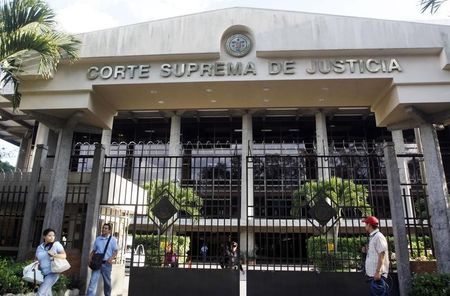On July 13, 2016, after more than 23 years of its enactment, the “General Amnesty Act for the Consolidation of Peace” was declared unconstitutional by the Constitutional Chamber of the Supreme Court of Justice of El Salvador. In what has become a landmark ruling for the victims of the armed conflict, the highest court of justice has opened up the possibility to try those people from both warring parties who perpetrated the most egregious international crimes during one of the bloodiest wars that took place in Latin America in the twentieth century.
 But the declaration of incompatibility of the “General Amnesty Act for the Consolidation of Peace” with the national and international corpus of law is not the only achievement in the quest of justice for the victims of the armed conflict. In that same judgment, El Salvador aligns itself with the current tradition in international law which establishes that war crimes and crimes against humanity are not bound by statutes of limitations. This decision also constitutes a breaking point with the national jurisprudence that had declared so far that the time to judge the international crimes committed during the civil war had passed by.
But the declaration of incompatibility of the “General Amnesty Act for the Consolidation of Peace” with the national and international corpus of law is not the only achievement in the quest of justice for the victims of the armed conflict. In that same judgment, El Salvador aligns itself with the current tradition in international law which establishes that war crimes and crimes against humanity are not bound by statutes of limitations. This decision also constitutes a breaking point with the national jurisprudence that had declared so far that the time to judge the international crimes committed during the civil war had passed by.
All these past years, this perverse law has been a monument to impunity erected and supported by the governmental authorities in turn, despite their supposedly antagonistic ideological inclinations. As a consequence of its adoption in March 22,1993, in El Salvador none one has been tried for gross violations to international human rights law and for serious violations to international humanitarian law. That is how, with the passing of time, the perpetrators within the country have remain victorious and unchallenged.
In the aftermath of the civil war two values came into tension in El Salvador: justice and peace. Since there was not a clear victor among the warring parties, both agreed that one of those two values had to be completely sacrificed in order to fully achieve the other. Thus, within the country, justice was relinquished in honor of peace. Nevertheless, as this recent judgment has taught us, justice must not be seen as the sacrificial lamb during the negotiation of peace agreements. Peace, in its positive conception, cannot be built upon the pillars of impunity. Believing otherwise would be like the parable of the wise and the foolish builders. Positive peace is built on rock. The rain will come, the streams will rise and the winds will blow, yet it will not fall, because it will have its foundation on the rock. Negative peace is built on sand. The rain will come, the streams will rise and the winds will blow, and it will fall with a great crash.
And it is with a great crash that both warring parties have received the decision of the Constitutional Chamber of the Supreme Court of Justice of El Salvador. Despite the multiples and persistent claims for justice made by the victims of the armed conflict over time, the two main political parties in El Salvador that emerged as a result of the civil war have vehemently and adamantly opposed the decision reached in these past days by the highest court, arguing that such a decision will open the wounds that were closed by that law a long time ago. But to the victims, whose wounds have not healed just with the passing of time, this judgment may indeed constitute a balsam that helps to start soothing those wounds.
Paula received an LL.B. Degree from the Central American University José Simeón Cañas, and a Master’s Degree in Human Rights and Education for Peace from the University of El Salvador. She also holds an LL.M. degree in International Human Rights Law from Notre Dame and a Master’s Degree in Human Rights and Democratization Processes from the University of Chile. Paula is currently pursuing a degree in History at the U of M. During the 2014-15 academic year, Paula was the Bernard and Fern Badzin Graduate Fellow at the Center for Holocaust & Genocide Studies.

Comments